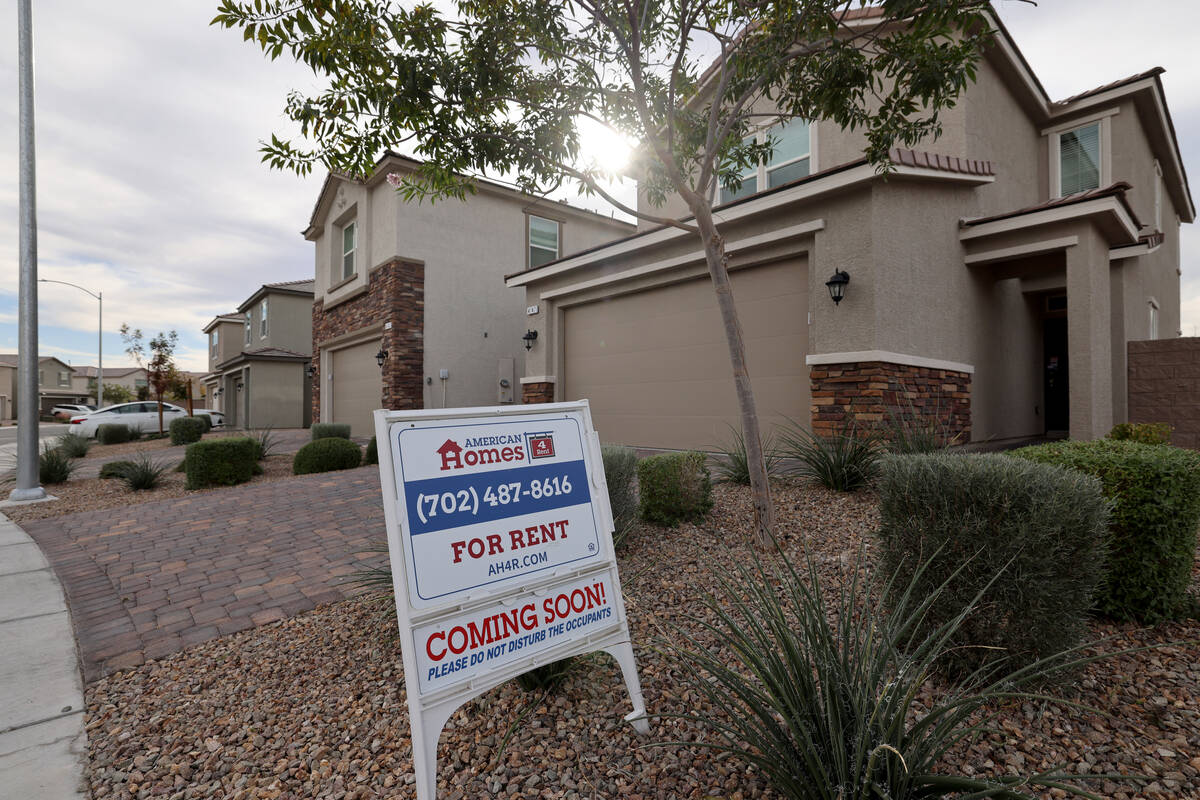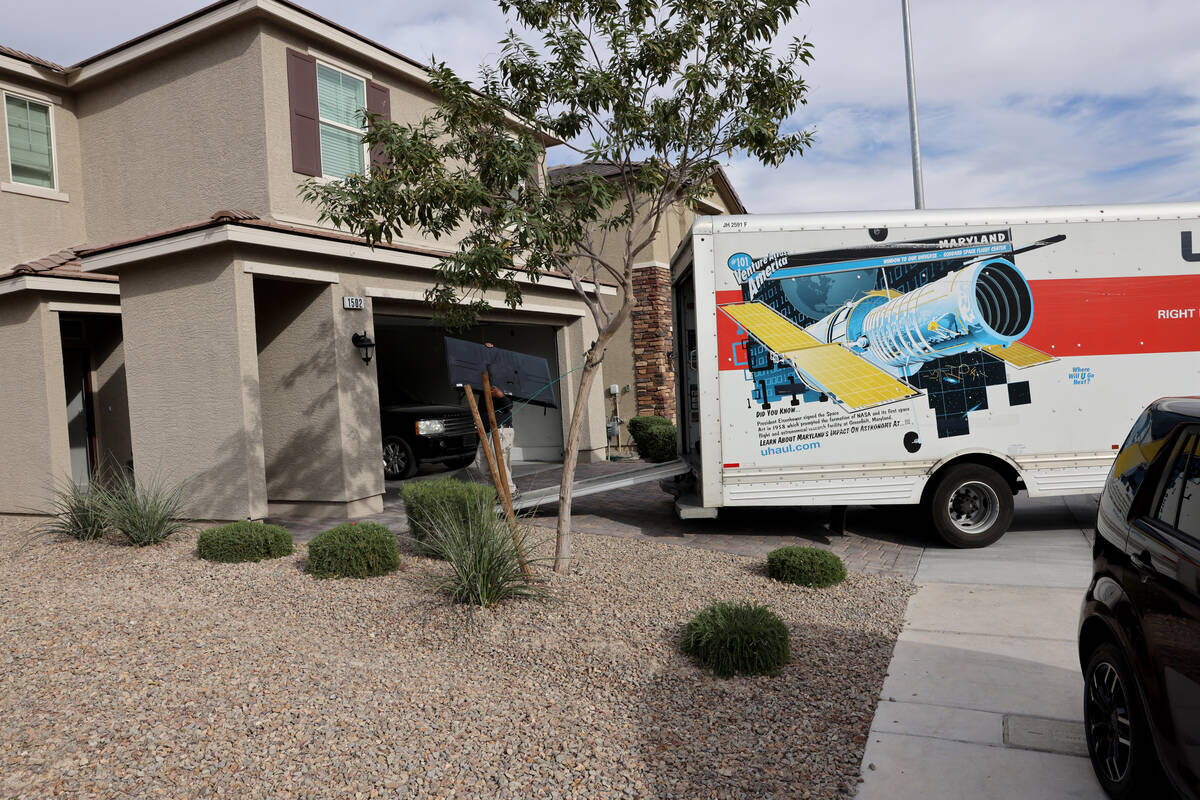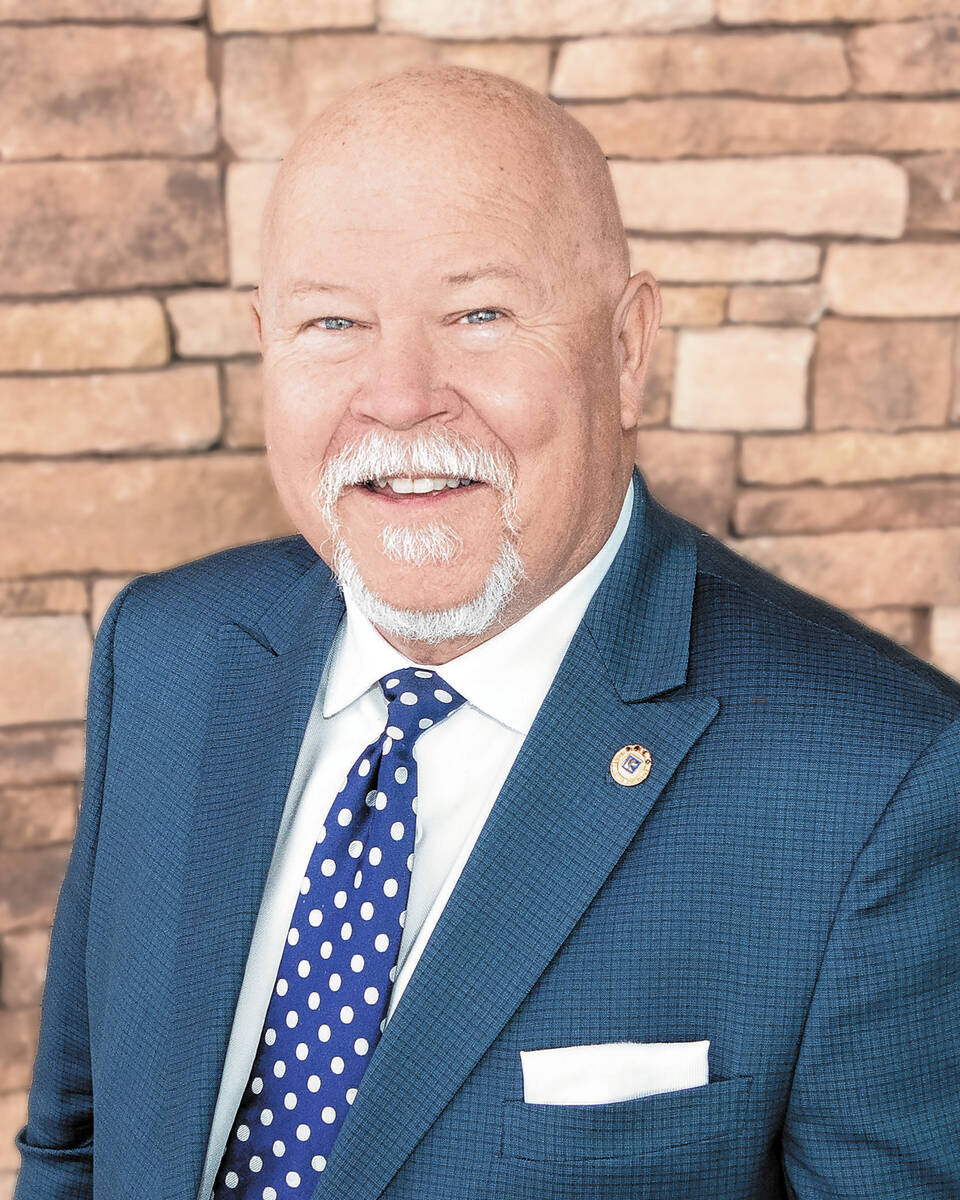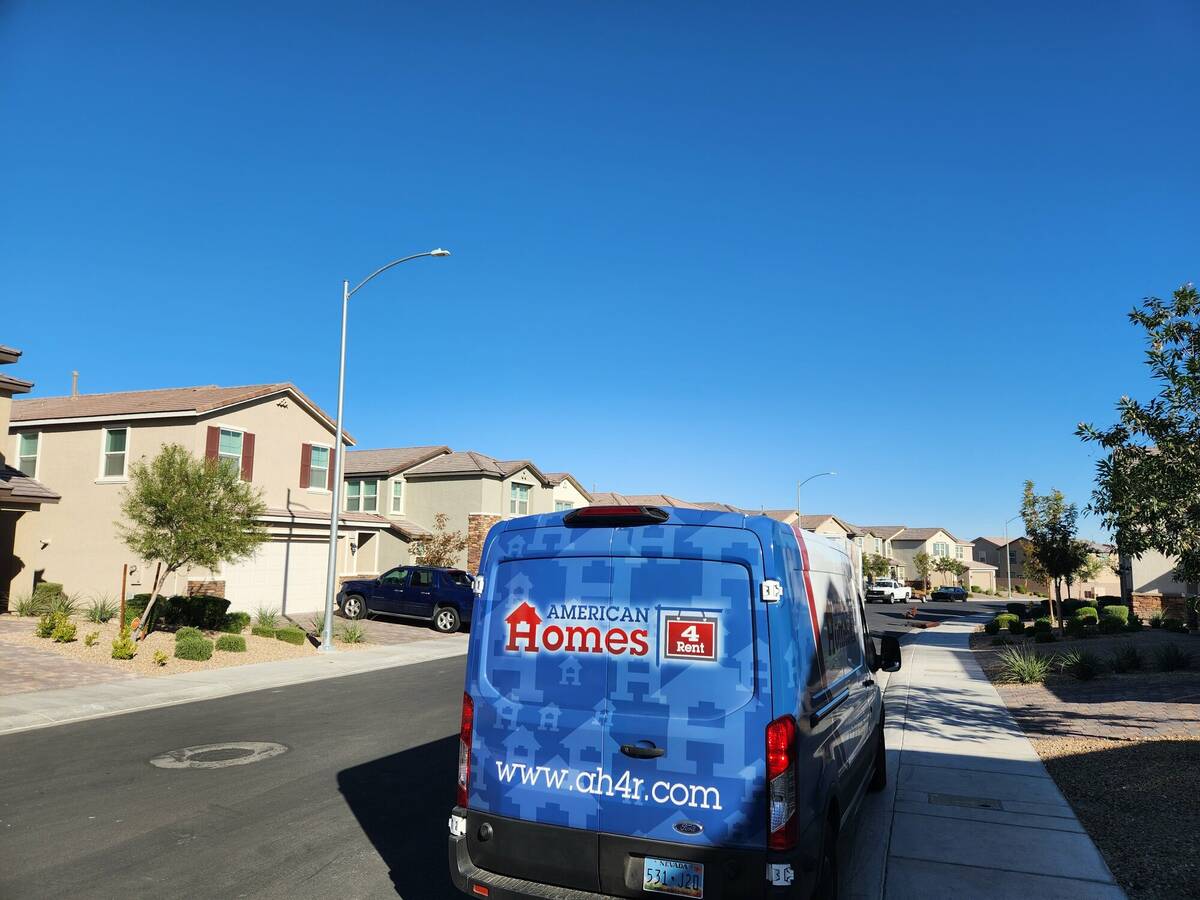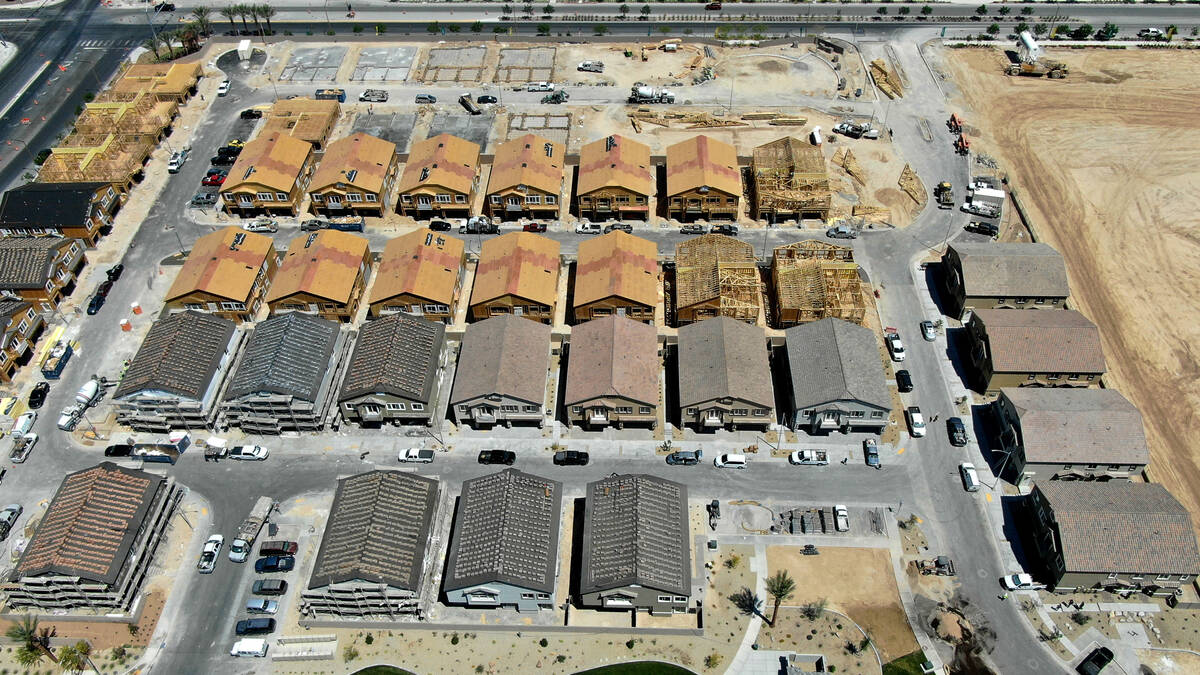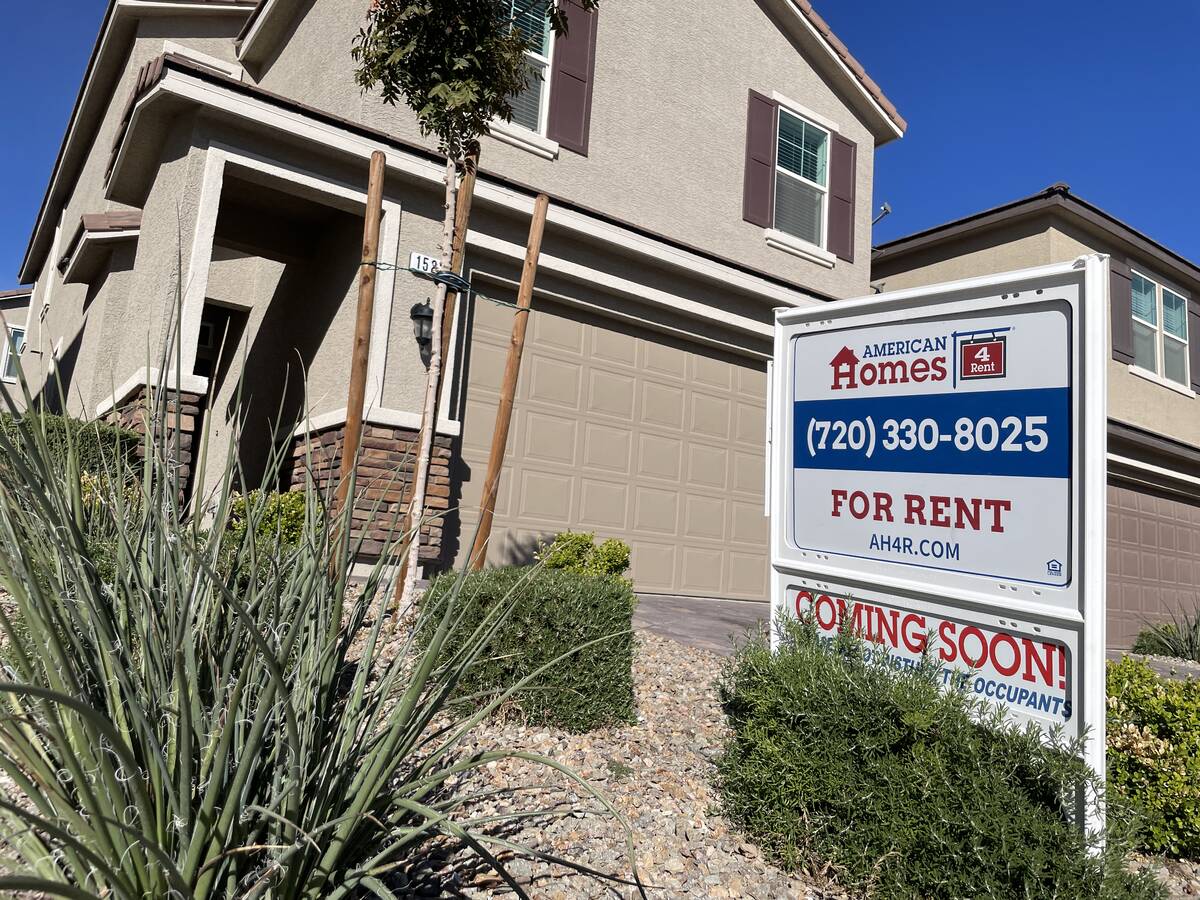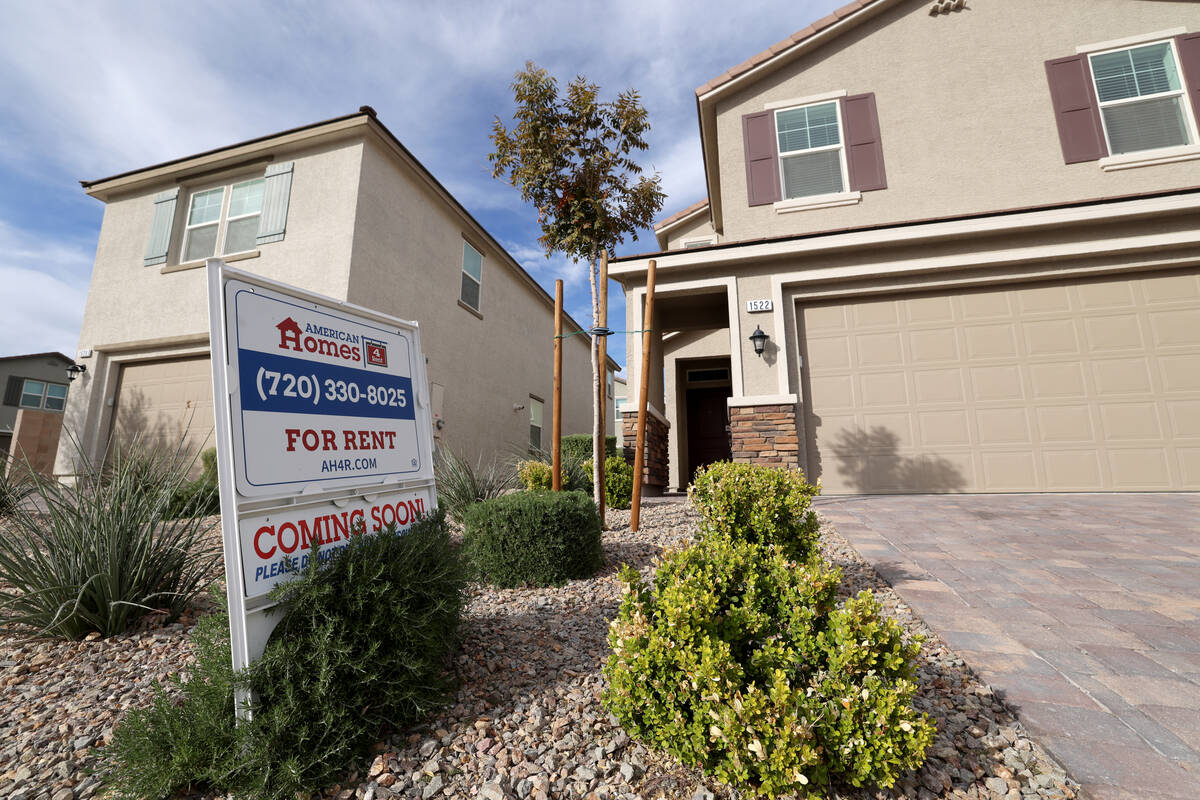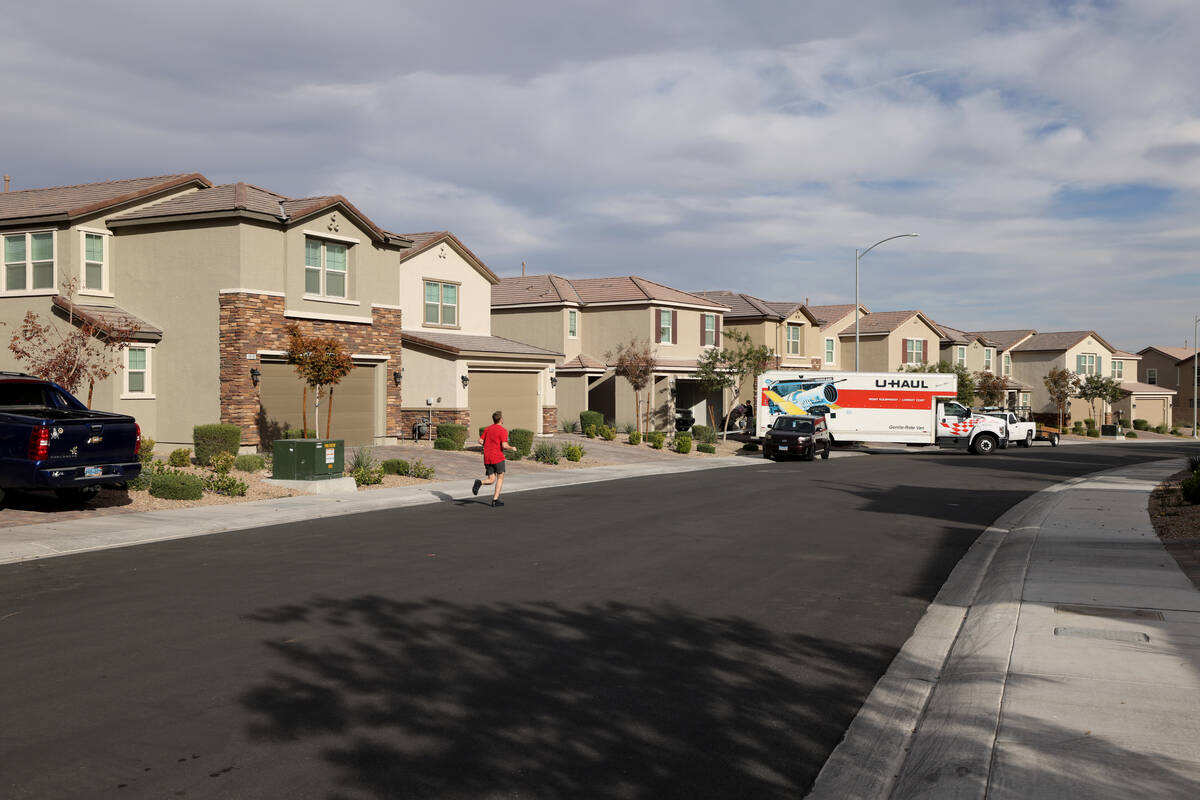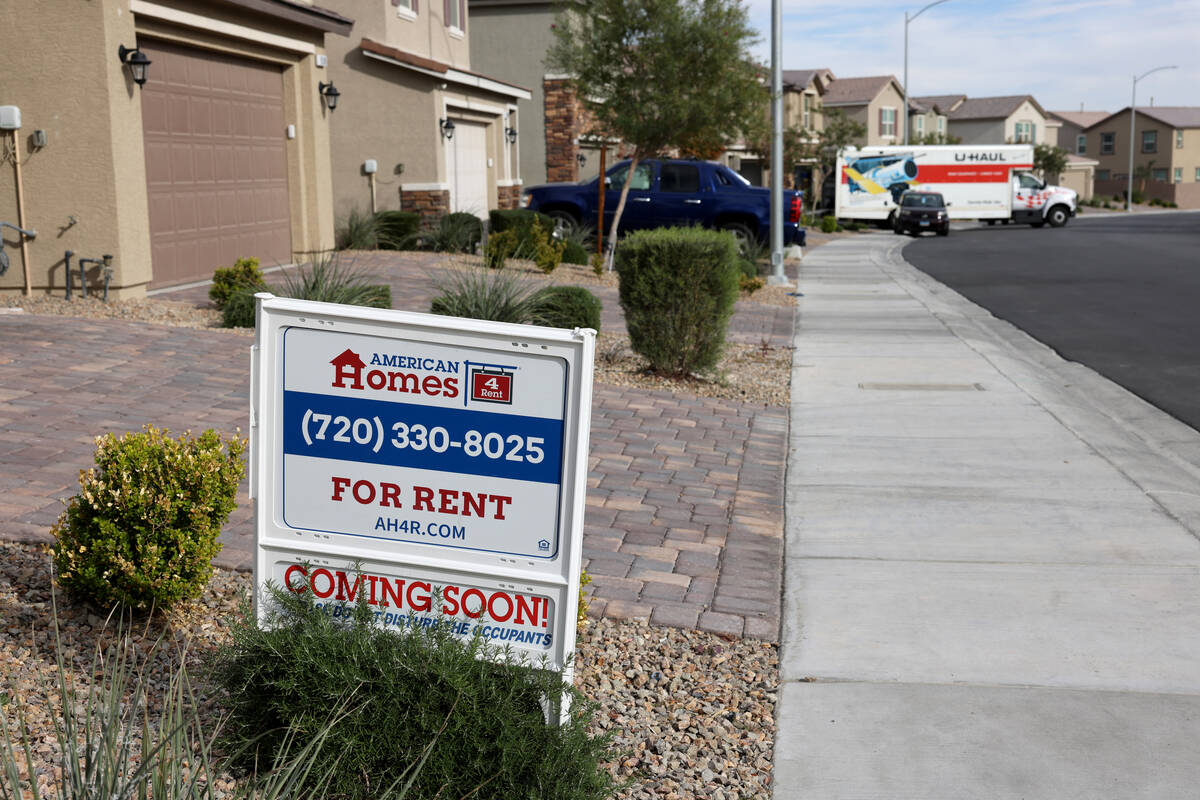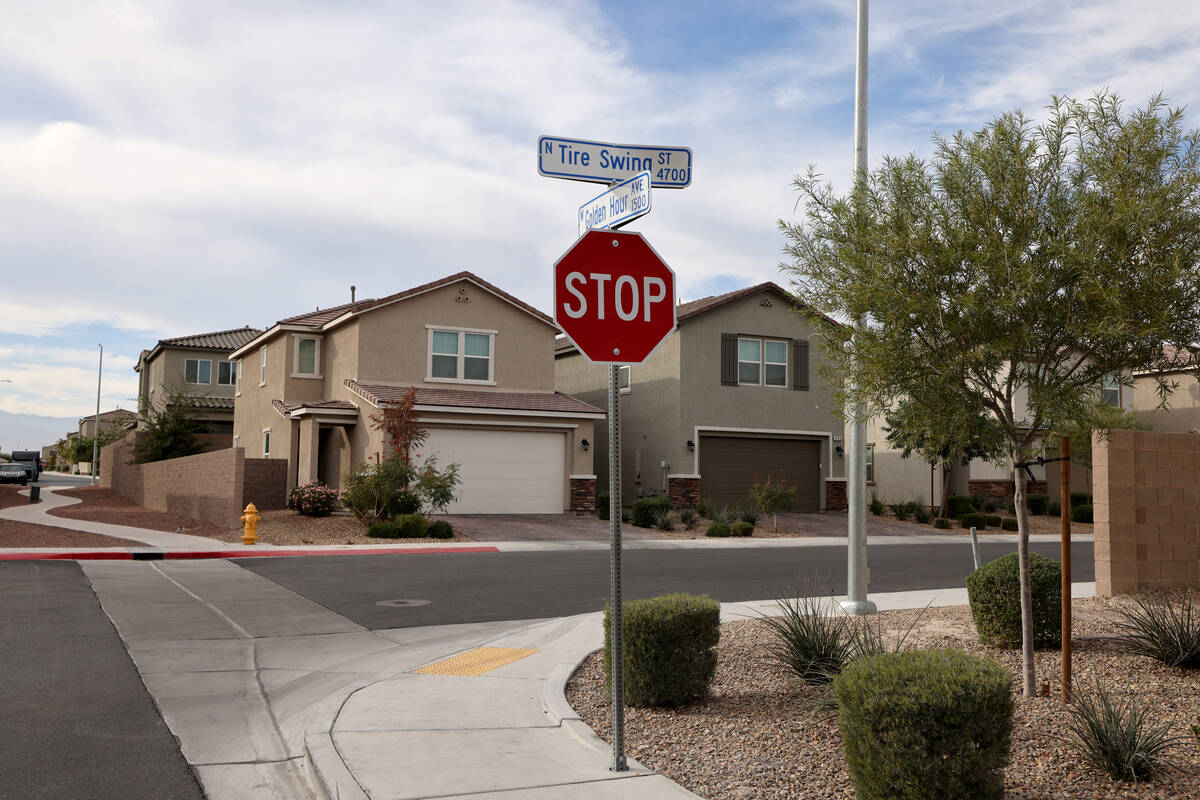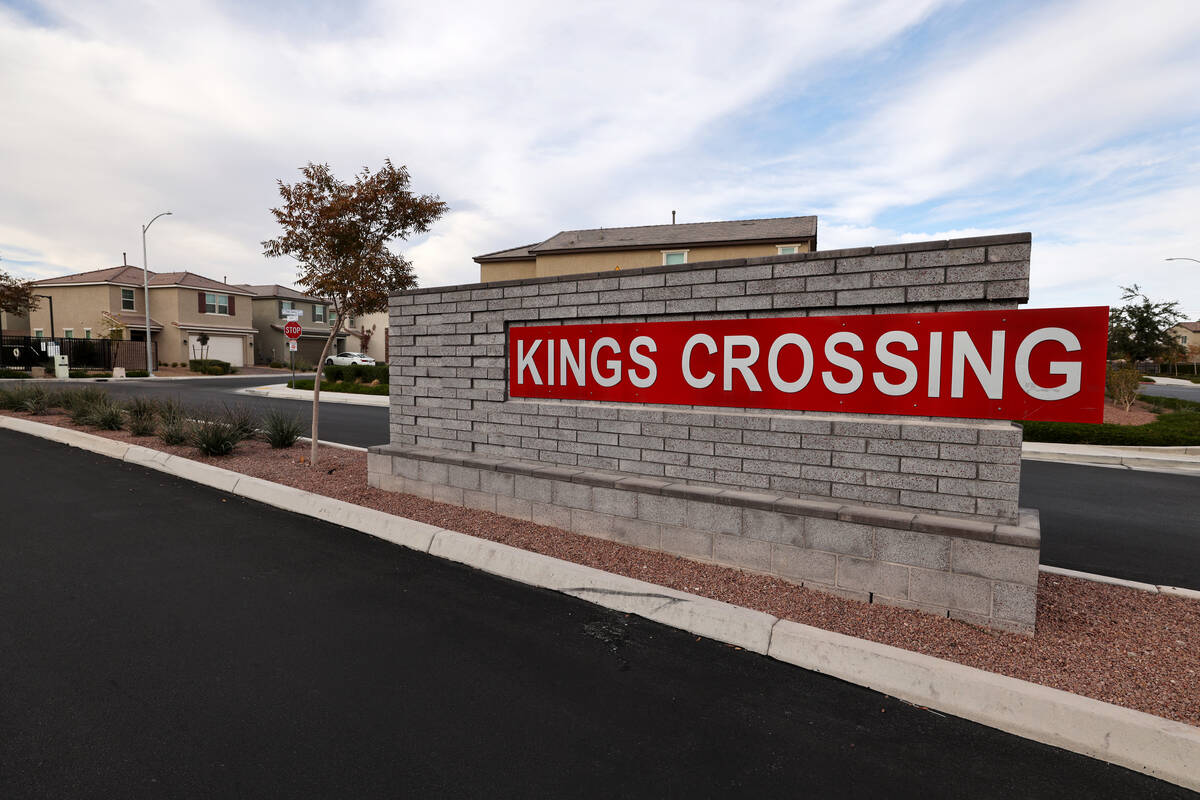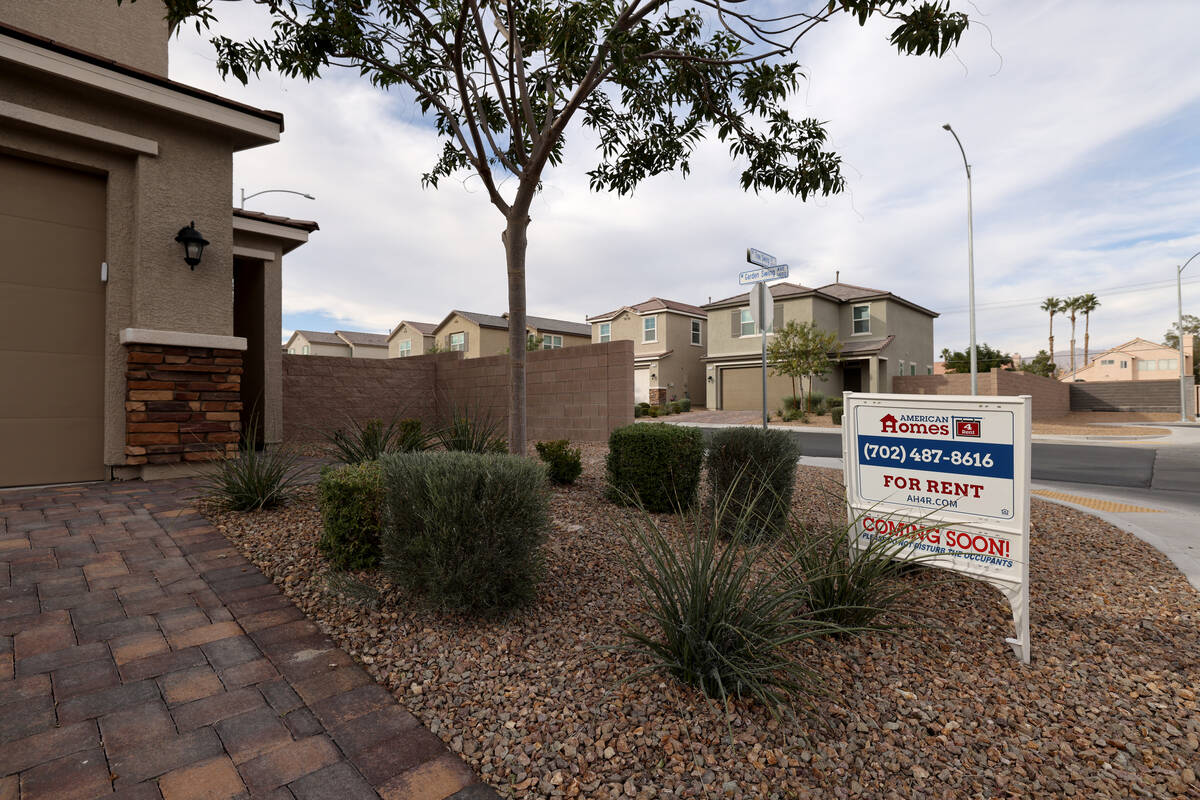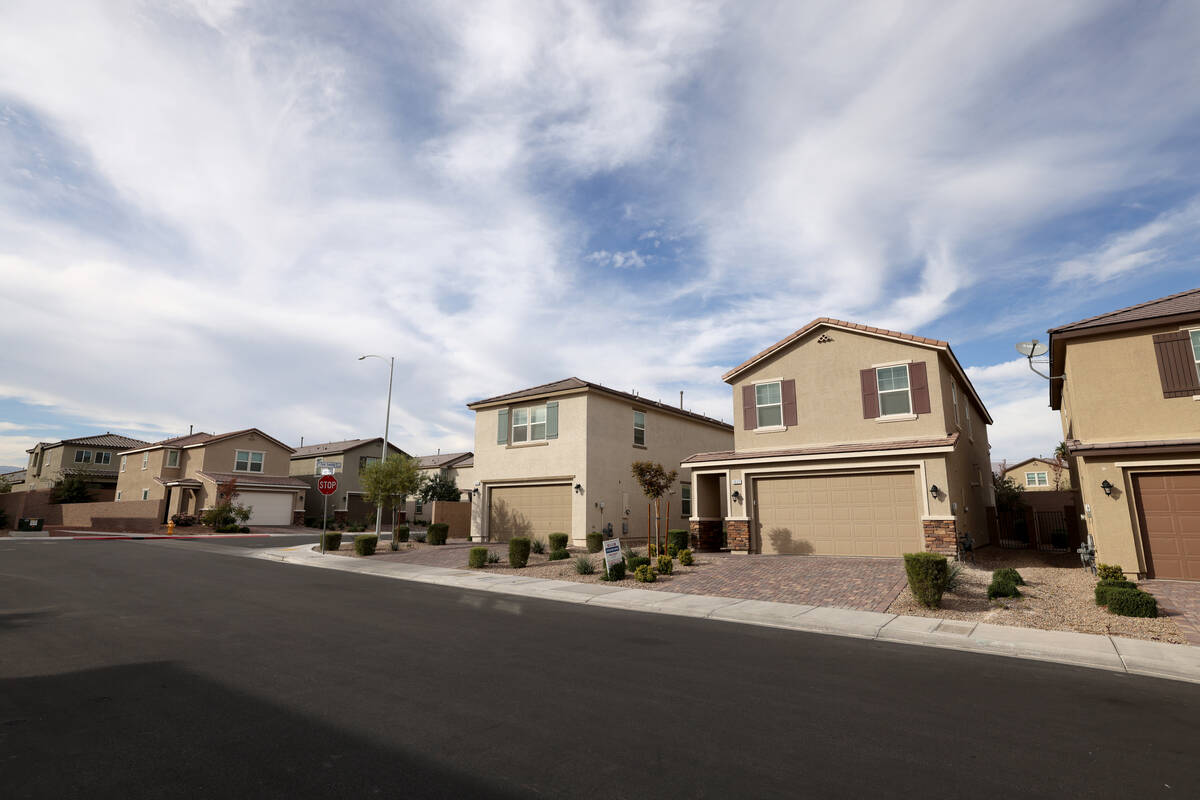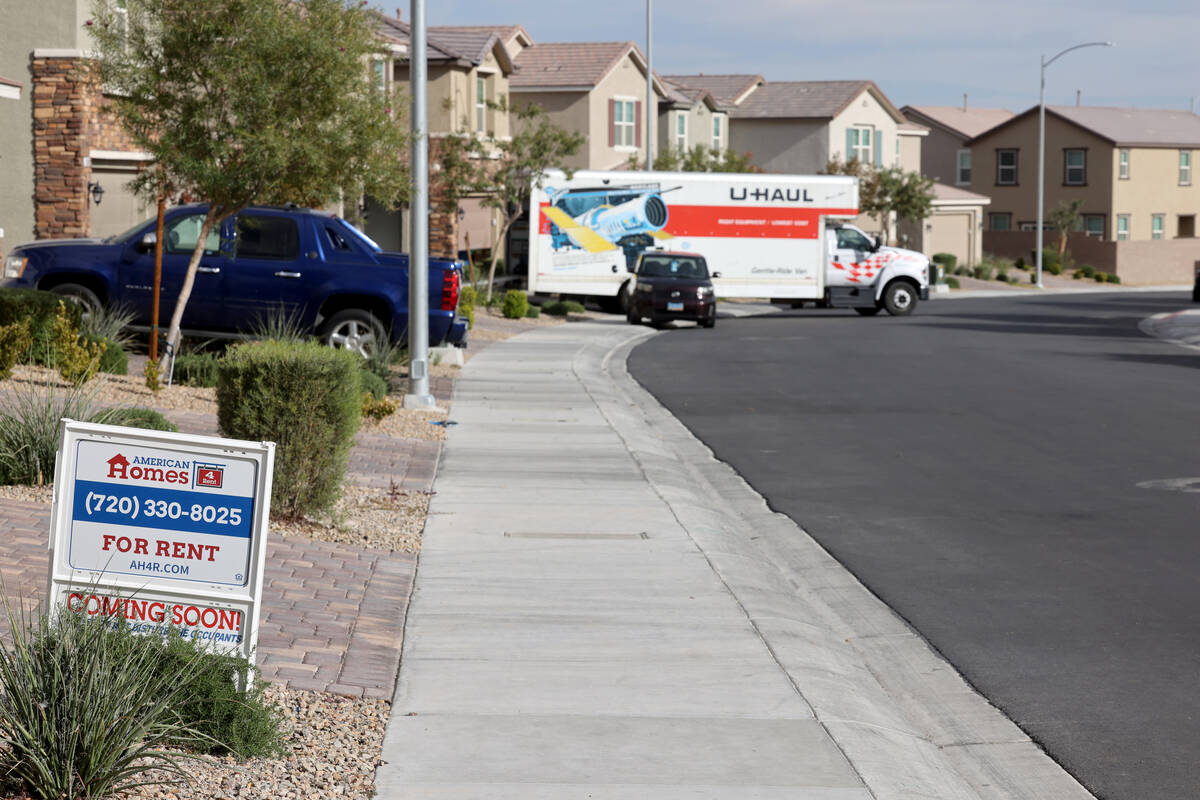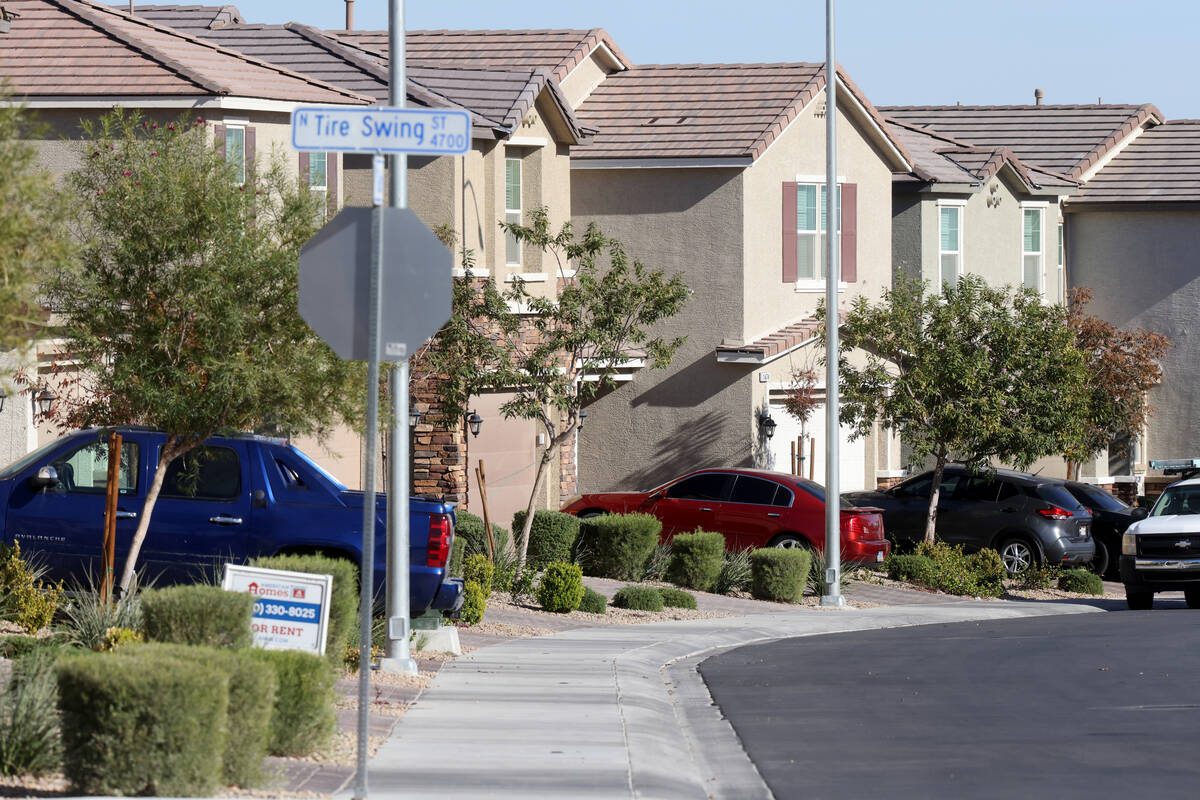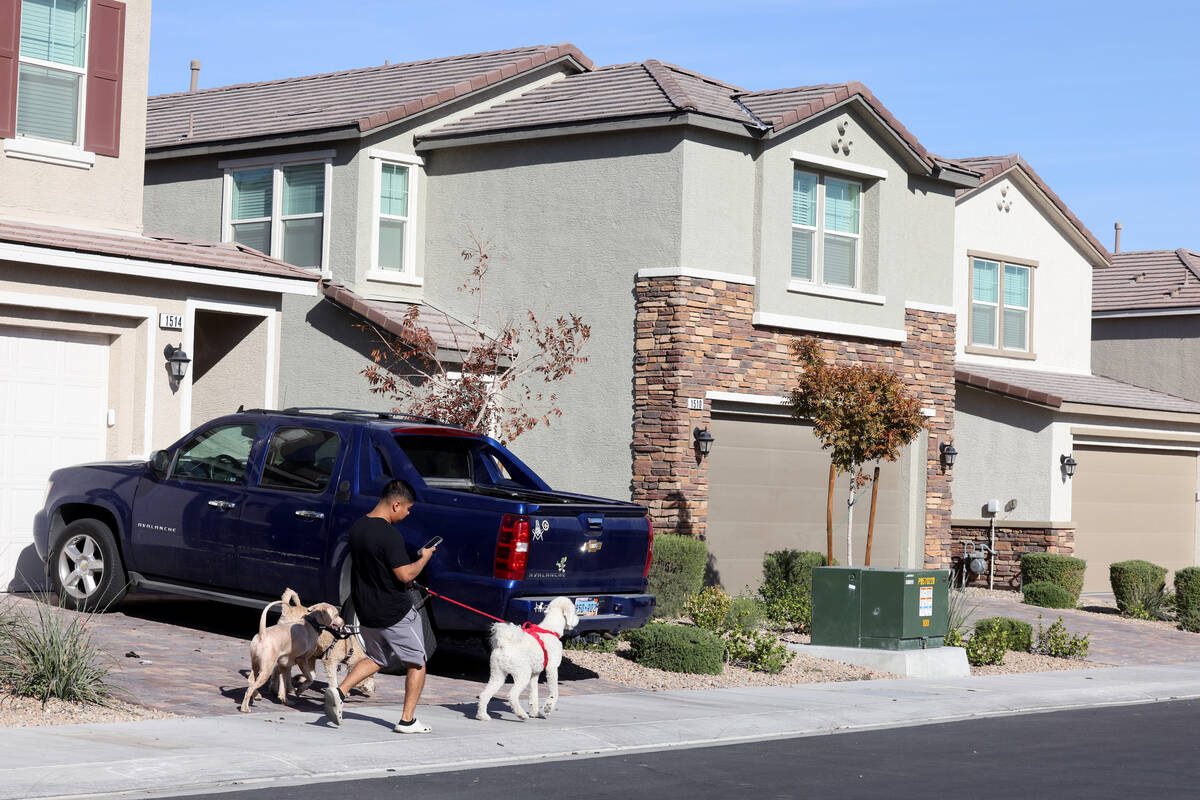North Las Vegas homes have a Wall Street problem
In this suburban North Las Vegas enclave, residents say three sights are common among the beige, cookie-cutter homes: U-Haul moving trucks, eviction notices and American Homes 4 Rent worker vans.
Those living in Kings Crossings, an entire neighborhood built, owned and operated by one the nation’s largest corporate landlords, said they can only afford to lease a sliver of the American dream.
“You’re told you’re supposed to get a four-year degree and graduate and you can buy a house, and all that’s just gone to s— ,” said Deja Bordenave, a 29-year-old cocktail waitress who rents in this neighborhood. “I feel like everything is becoming so unobtainable.”
During the pandemic, Wall Street-backed companies and hedge funds significantly expanded their holdings in Southern Nevada’s single-family rental market, through both purchases and new construction. Eight of the most prolific companies now own more than 13,000 homes combined in Clark County, compared to fewer than 8,000 in 2019, according to an analysis of property records by Rutgers University assistant professor and researcher Eric Seymour.
Housing experts say these companies frequently outbid individual homebuyers, driving up property prices and leaving tenants vulnerable to profit-maximizing rent hikes. A Las Vegas Review-Journal investigation published in 2019 found many of the same corporate landlords evicted tenants at rates higher than the Las Vegas Valley average for single-family rentals, but the Nevada Housing Division still does not measure their presence.
North Las Vegas has seen some of the most explosive growth, helping spark a failed attempt at rent-control reforms in the city last year.
Before she moved into her latest rental this summer, Bordenave leased a nearby home in the city from another burgeoning company, FirstKey Homes. Her newest landlord, American Homes 4 Rent, is a Las Vegas-based company that’s publicly traded on the New York Stock Exchange.
The company, now known as AMH, more than doubled its Clark County holdings to some 2,000 single-family homes between 2019 and 2023. In North Las Vegas alone, its presence has increased more than fivefold to almost 500 houses, a swell fueled by new construction, records show. In a written statement, an AMH spokesperson described the company’s expansion as “part of the solution to the national housing shortage and affordability crisis.”
Seymour’s analysis sheds new light on previous research from UNLV. Researchers there estimate that corporate investors, including those with smaller portfolios, could own 14 percent of the Clark County’s entire single-family housing stock, and estimates from UNLV for North Las Vegas are even higher where they own 25 percent of the housing supply.
When AMH and companies like it buy houses, they target “suburban starter home areas” in cities across the nation’s Southwest and Southeast, Seymour said. The trend has caused alarm among some of Nevada’s highest-ranking politicians.
U.S. Rep. Steven Horsford, D-Nevada, has called for federal investigations into whether corporate landlords have artificially inflated rent and property costs in majority-minority communities such as North Las Vegas.
“They have targeted certain communities and when we look at the demographics, those are communities that are largely led by women of single households, those single mothers, typically who are either trying to buy or rent property,” he said. “They are targeting communities of color, Black, Latino and Asian, both homeowners and renters.”
AMH contended that its “nominal share (of the Las Vegas Valley’s single-family housing market) is not significant enough to drive market dynamics.”
The Review-Journal asked to interview North Las Vegas Mayor Pamela Goynes-Brown concerning the growing issue of corporate landlords in the city. City officials instead provided a written statement that “corporate investment in housing is not unique to Southern Nevada – it is a nationwide issue that demands a comprehensive solution at the federal, state and local levels of government.”
The statement referred to “collaborating” on “solutions” to the problems with legislators and policymakers, however did not specify or elaborate as to what those might be, or any progress that has already been made.
This November, a four-bedroom rental in Kings Crossings was priced at almost $2,300 a month, AMH’s website showed. Resident Troy Chism said he can tell his neighbors are struggling to make ends meet.
“If you really pay attention, you will see a driveway with seven cars there because there’s seven people living there,” he said.
What is Wall Street’s plan for America’s housing market?
Corporate landlords’ large-scale entrance into the single-family rental market traces back to when the nation’s housing market crippled the global economy.
“They’ve bought in places where they could pick up large numbers of homes at a discount following the foreclosure crisis and where there is strong demand for rental homes and lax tenant protections,” Seymour said.
Las Vegas Realtors President Lee Barrett recalled a CNBC appearance by Warren Buffett in 2012. In it, the “Oracle of Omaha,” known for accurately forecasting the economy and its many turns, discussed Blackstone, Pretium Partners and other Wall Street hedge funds entering the housing market in the wake of the Great Recession.
“If I had a way of buying a couple hundred thousand single-family homes, and had a way of managing them… I would load up on them, and I would take mortgages out at very very low rates,” he said in the interview. “It’s a very attractive asset class now.”
At the time, corporate investors were a lifeline to an industry on its deathbed, Barrett said.
“They were investors coming in with cash and that helped a lot of people get out of short sales and foreclosures,” he said.
That optimism has since soured. Deep-pocketed investors have continued buying up local homes, bypassing real estate agents altogether by making sight-unseen cash offers well over a property’s asking price. The ramp up during the pandemic dashed the hopes of many locals looking to buy their first property.
“This was across the board and a daily occurrence for all of my agents,” said Mike Roland, who manages a local realty team.
While it’s clear where today’s trends originated, Roland and Barrett agreed that corporate landlords’ endgame is difficult to predict. The simplest answer might be the best: In a world of volatile investment opportunities, housing appears a steady place to turn a profit.
“They’re definitely seeing something that is driving them in that direction,” Roland said. “I don’t know what their move is, but I trust they know what they’re doing.”
The end of the American Dream?
Despite scrutiny at the federal level, political gridlock in Washington has made it difficult for Congress to pass housing reforms regarding corporate landlords, Horsford said.
Attempts at the state level have also hit roadblocks. A Democrat-backed bill to track and limit investor purchases in Nevada’s housing market met its end under Gov. Joe Lombardo’s veto pen this June. Lombardo, a Republican, said the legislation would “arbitrarily” limit home sales and undercut millions in commerce tax revenue.
Some officials are hesitant to even speak publicly about the issue. Nevada’s official affordable housing advocate declined interview requests from the Review-Journal. In an email, Jeneeah Girma acknowledged that the state’s Housing Division does not track corporate ownership of single-family homes and has “not done an analysis on the impact of private equity ownership in the state.”
For working class Nevadans like Bordenave, competing against financial giants can seem insurmountable. She and her fiance want to purchase a home as they start a family, but ownership feels like it is slipping away.
“Can normal American people — not even super rich people — can we get the American dream?” she asked. “I feel like that’s just going poof, you know, the white picket fence.”
Contact Jimmy Romo at jromo@reviewjournal.com or call 702-383-0350. Follow @jimi_writes on X. Contact Patrick Blennerhassett at pblennerhassett@reviewjournal.com. Review-Journal data editor Michael Scott Davidson contributed to this report.



